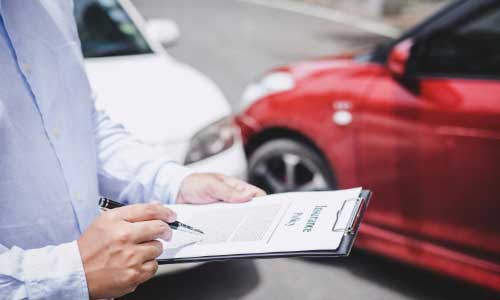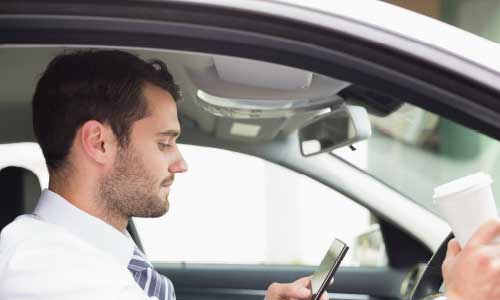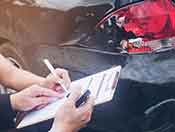800 800 001
Best Car Insurance in UAE
Some of the best and the cheapest car insurance quotes in Dubai are:
The concept of car insurance plans is based mainly on the car itself rather than the owner. That is why you are able to transfer your car insurance plan, switch policies effortlessly and even retain your no-claim bonus benefits regardless of how many times you buy a new car. But this creates an idea that you only need a car insurance plan when you own a car. However, the fact is that all licensed drivers need car insurance cover, even if they do not own a vehicle and drive a borrowed one. This is where a non-owner car insurance plan comes in. Designed to cover drivers on a per-person basis, a non-owner auto insurance plan is perfect for folks who drive borrowed or rented cars a lot.
What is Non-Owner Car Insurance?
Non-owner car insurance plans are liability covers for licensed drivers who do not own a car but drive often. A typical non-owner auto insurance plan will pay for the damages caused to the third-party vehicle as well as the medical treatment of the third party if the policyholder causes an accident while driving a vehicle that they do not own. It may also cover legal fees if the policyholder is sued for the accident they caused. Depending on the coverage level your insurance provider offers, non-owner auto insurance plans may also cover a few additional things such as bodily injury. In addition to this, non-owner car insurance also serves as proof of insurance.
How Does Non-Owner Car Insurance Work?
There are two ways a non-owner car insurance plan may come into effect. Suppose you are driving a borrowed car and happen to cause an accident. If the primary insurance plan of the car owner covers a part of the damage caused, your non-owner auto insurance will cover the rest of the cost. Let’s assume that the primary insurance plan of the owner does not cover damages in the event that anyone but the owner or a named driver is driving the car. Here, your non-owner car insurance plan will bear all expenses up to the assured sum limit. This simply means that non-owner car insurance plans are secondary level coverage.
What is Covered by Non-Owner Car Insurance?
Most non-owner car insurance plans are designed to cover the minimum required coverage for car insurance in the UAE, i.e., third-party liability coverage. However, several plans will cover a lot more than just the bare minimum. Given below are some of the additional coverage benefits you can look forward to getting with a non-owner auto insurance plan:
- Bodily injury caused to the third party in case you were driving a car that you do not own.
- Damages caused to the third-party vehicle while driving a vehicle you do not own.
- Any injuries sustained by the third-party driver in an accident where you were at fault.
- Legal fee if there is a lawsuit filed by the third party.
- Insurance coverage for the underinsured motorist. Here, the insurance company will cover repair expenses and medical treatment expenses for you if the liable third party does not have insurance coverage comprehensive enough to cover them.
- Cover for your medical expenses regardless of who has caused the accident in concern.
What is Not Covered by Non-Owner Car Insurance?
- Own Damage Coverage: Non-owner car insurance plans do not come with the basic collision coverage that is provided by comprehensive car insurance plans. Own damage coverage comprises some of the most important covers in a comprehensive car insurance plan. Without the own damage cover, a non-owner car insurance plan will not have covers like theft, fire damages, natural disaster cover, man-made disaster cover, etc. If there is an accident that causes damage to the vehicle, it can be covered under the primary plan or the plan of the third party.
- Personal Injuries: If the non-owner auto insurance plan only covers basic third-party liability, any personal injuries you suffer in the accident will not be covered. Emergency medical assistance can be provided depending on the plan.
- Any Other Drivers: Your own-driver car insurance plan will only cover you as an additional driver of the cars you drive. Other drivers cannot be included in a non-owner car insurance plan. This means there can be no named drivers or multiple policyholders for a non-owner car insurance policy.
- Commercial Vehicles: This includes any vehicle you drive for business purposes. Whether it is a company car or any other kind of commercial/business vehicle, non-owner car insurance plans do not cover them as they are covered by the company car insurance plans.
- Personal Effects in the Car: Lost or stolen personal items from the car that you drive but do not own are not covered by a non-owner car insurance plan.
Who Needs Non-Owner Car Insurance Policy?
You may need to get a non-owner auto insurance plan if you can find yourself fitting in one of the below-given scenarios:
People Who Rent Cars
If you frequently rent cars from rental agencies, you may consider buying a non-owner auto insurance plan. Renting a car in the UAE requires you to buy car rental insurance either way. Most rental agencies that rent the cars buy their own rental insurance and then charge their customers a certain fee for car insurance during their rental period. If the rental agency sees a non-owner auto insurance plan as a valid option, prefer to get that instead of the rental car insurance plan. Non-owner car insurance plans will end up being a lot more cost-effective in the long run as compared to other kinds of car insurance plans for rented cars. Just make sure that you get a collision damage waiver for the rented car from the agency, or have credit card rental insurance to cover them.
People Who Borrow Cars Frequently
If you constantly borrow a car from your friends or relatives, non-owner car insurance might be for you. Borrowing a car will also include arrangements like carpooling, where you drive your colleague’s car on a rotation basis. While your friend may have a comprehensive car insurance plan for their car, it will not cover you as a driver. Other drivers, apart from the owner of the car, are only covered by insurance plans if they are included as named drivers in the insurance plan. So, if you happen to get in an accident, you will not get any accidental injury coverage and neither will the car be covered for its own damages. One thing you need to know here is that if the car you borrow belongs to your flatmates or is the only car that you borrow frequently, you must have your name added to the primary car insurance plan of that vehicle. If not, your non-driver car insurance plan may not cover you in the event of an accident. The frequency of borrowing one particular vehicle matters a lot here. If there are a few different cars that you borrow, being a named driver for all of them is not necessary.
People Sold Their Car But Will Drive
The ‘lapse’ or gap in your car insurance coverage can lead you to lose several of your benefits in the blink of an eye. For example, you will lose your accumulated no-claim bonus if there is a gap between the car insurance covers taken under your name. Selling your car can be tricky considering the benefits that are at stake. Non-driver car insurance plan can benefit you a lot if the plan of selling your car is afoot. Since you do not need to own a vehicle to get this insurance, getting this cover will be fairly easy. Moreover, it will offer the required insurance coverage you may need to drive another vehicle during this time.
You Cannot Drive Your Car for the Time Being
Committing traffic violations can lead to vehicle confiscations in the UAE. If the violation is serious enough, you may not be able to drive your car for a prolonged period. Having a non-owner car insurance plan in a situation like this can be quite helpful. You will not only be able to drive other vehicles using your non-driver car insurance plans, but it also serves as proof of financial responsibility. This also betters your chances of getting your license reinstated sooner than expected.
Related Article Driving in the UAE? Take Note of These Dubai Traffic Rules
Who Shouldn’t Get a Non-Owner Auto Insurance?
Even when you are driving a car, you may not always need a non-owner car insurance plan. Here are some situations where you will not require a non-owner car insurance plan:
Driving a Corporate Car
Company cars that are driven by employees are insured to cover them as the drivers of the allotted vehicle. Most companies also include the name of the employee in the car insurance plan for the concerned vehicle. If any of these conditions apply to the company car that you drive, getting a non-owner car insurance plan will be an expense in vain for you. However, keep in mind that the car insurance plan of your company car will only cover you when you use the company car for work-related purposes. If you use your company car for personal reasons, you will not be covered by the corporate fleet insurance of your company. If this is something you think would happen, consider getting a non-owner auto insurance plan.
Own a Car
Naturally, if you own a car, getting a non-owner car insurance plan becomes redundant. Even if you borrow or rent another vehicle with a valid contract in place, your own liability insurance coverage will cover you in the event of an accident. If your insurance provider has a slightly or entirely different set of rules regarding this kind of cover, consider getting an umbrella car insurance policy instead. In addition to that, if you own a car but also drive other cars that are owned by your family members or spouse, simply consider being a named driver.
Rarely Ever Borrow or Rent Cars
If you hardly ever borrow another car, you probably won’t need a non-owner car insurance plan. In addition to that, if your friend or relative has permitted you to drive the car, the primary car insurance plan will cover you for accidental injuries and damages. However, there are a few things that you need to keep in mind here. If a claim is made against the primary car insurance plan for an accident where you were driving the car, the premium of the plan will increase during the next tenure. Any costs that are beyond the assured coverage of the plan are to be borne by you. And finally, not all insurance providers extend the coverage to include other occasional drivers of the car. Make sure that you or your friend who owns the car has already checked this.
You Drive Your Family Car
Just like in the case of your company, driving a family car also doesn’t require you to get a non-driver car insurance plan. You can simply get your name added as a named driver in the primary car insurance plan of the vehicle under consideration. The same applies if the car belongs to a flatmate or a roommate. Since the resident address is the same for you both, you can easily add your name as a named driver of the car that you borrow.
Factors That Can Affect Non-Owner Car Insurance Price
- Coverage of the Plan: The cost of your non-owner car insurance will depend on the coverage of the plan. The more benefits added to the plan, the higher the price will be.
- Driving History: Just like with any basic car insurance plan, the driving history of the policyholder has a huge impact on the price of the non-owner car insurance plan. People with good driving records get lower premium prices while those with a lot of violations on their license get a higher price. If you have a good record for a long time, insurance companies will offer further discounts on the insurance plan.
- Place of Residence: Your geographical location also makes a huge difference when it comes to the premium of the plan. Places that are highly crowded and hence pose a higher risk of accidents will be charged higher premiums on non-owner auto insurance plans. Places with better traffic conditions will get lower premiums. Another thing that can make a difference here is the place you plan to drive the most. If your regular routes are not in good shape or prone to accidents, insurance prices may increase.
- Frequency of Driving: In the simplest of terms – the higher the frequency of your driving, the higher will be the insurance price of the plan.
- Previously Bought Plans: The car insurance plans you had before may also affect the price of your current non-owner car insurance plan. Your claim history with your previous plans will help the insurer determine the kind of customer you are as a policyholder. Less frequent claim applications lead the insurance company to see you as a less risky customer and will hence offer lower premiums.
- Age of the Driver: Younger, less experienced drivers are prone to being charged higher car insurance premiums as compared to older, experienced drivers. If you are younger than 25 years of age, chances are that your premium for a non-owner auto insurance plan will be higher.
- Credit Score: This may seem quite unrelated, but your credit score also has a huge impact on your car insurance premium rates. A good credit score represents you as someone who is responsible for their finances and loans. This is something every business considers when taking on clients. Hence, ensure that your credit score is good enough for the evaluation.
Non-owner Car Insurance FAQs
Q1. What happens to my non-owner car insurance plan if I buy a car after buying the plan?
Ans. Your non-owner car insurance will not cover your own car in any scenario. You will have to buy a new comprehensive car insurance plan to cover the car that you own. You can continue to use the non-owner car insurance cover for the times when you drive a borrowed vehicle.
Q2. Will I get coverage for rental cars in a non-owner car insurance plan?
Ans. While you will be covered for third-party liabilities when you drive a rental car, the damages to your rental car may not be covered. Only a handful of non-owner car insurance policies cover own damages and bodily injuries for the policyholder. You can either have the rental car covered with the rental insurance your credit card offers or pay a small fee to the rental agency for the coverage.
Q3. Will I have to pay for deductibles in my non-owner auto insurance plan?
Ans. No, deductibles do not apply to non-owner car insurance plans. Whatever the expenses are, they will be covered in full up to the assured sum offered in the plan that you buy.
Q4. Can I insure a car or two-wheeler that I do not own?
Ans. No, non-owner car insurance plans are not designed to insure a vehicle that you do not own yourself. These plans are person-based instead of being vehicle-based. This means that only the driver can be insured by non-owner car insurance against third-party liabilities and some other benefits when driving a car they do not own.
Q5. Will my no-claim bonus be retained if I am covered by non-owner car insurance instead of the traditional one?
Ans. Yes, one of the biggest benefits of a non-owner car insurance plan is that it prevents the lapse or gap in insurance coverage for the period when you do not own a vehicle yourself. Hence, your no-claim bonus will not expire if you continue to own a car insurance plan in the form of non-owner insurance rather than the traditional one.
Q6. Can non-owner car insurance be used as secondary car insurance coverage?
Ans. Yes, non-owner car insurance kicks in as secondary coverage if the primary cover of the borrowed vehicle is not enough to cover all the damages caused when you are driving. If the primary coverage has provisions that do not cover the damages when anyone except the owner is driving the car, then non-owner car insurance works as the primary plan to cover the damage repair expenses.
Q7. Can I add other people to my non-owner auto insurance plan?
Ans. Unlike traditional car insurance plans, named drivers from your family or residence cannot be added to a non-driver car insurance policy. It is a per-person plan and hence can only cover one policyholder.
More From Car Insurance
- Recent Articles
- Popular Articles



















